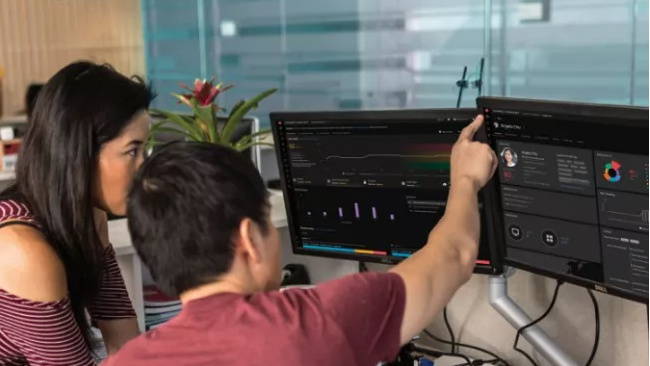Future Cities widens its reach with big data
A multi-million pound initiative is showing how smart technologies can solve cities' problems.

Inside the enterprise: Back in 2011, the Government announced that it would be spending 25 million on a project known as the Future Cities demonstrator. The scheme, run through the Technology Strategy Board, aims to use technology to address issues such as congestion and pollution, quality of life and the environment, and urban development by connecting up city systems, and using more data.
Given the size of the investment on offer, Future Cities has been relatively low key. This January, Glasgow won the competition to be the first "demonstrator" city, with 24 million of funding (the rest of the pot was used in grants for cities' feasibility studies).
Glasgow is spending the funds on a range of projects, including improving council services, crime prevention and improving travel infrastructure.
London's scheme, at least from a technology point of view, is the most ambitious.
The University of Strathclyde will host a "City Observatory" that will bring together more than 200 data feeds about the city, and make them available to businesses and to academic researchers. The public sector will also be bringing together its services under the banner of "MyGlasgow" for the public, but also dashboards for authorities to monitor operations in real-time.
The Technology Strategy Board has now expanded the scheme to three additional cities: London, Peterborough and Bristol. Each demonstrator is based around a 3 million grant. Bristol is developing a Citywide Living Lab, which will make public sector data available to businesses, as well as to help the public sector deliver better services.
Peterborough will be using funds to help develop its cluster of "eco-technology" businesses, including agencies, R&D and research organisations, and SMEs, as well as a skills development programme.
But London's scheme, at least from a technology point of view, is the most ambitious. The capital will use the demonstrator funding to create a 3D map of the city's utilities across four boroughs in East London.
Get the ITPro daily newsletter
Sign up today and you will receive a free copy of our Future Focus 2025 report - the leading guidance on AI, cybersecurity and other IT challenges as per 700+ senior executives
This will be coupled with an automated system for road works enquiries, something that will resonate with anyone who's ever been stuck in London's traffic. The Technology Strategy Board estimates that the programme will save 5.6m a year.
Roadworks might just be an everyday annoyance for some, but at a city-wide level they are a real hindrance to economic growth. By using predictive analysis, the London project, run by the Greater London Authority, will allow people to view predictions of journey times, based on real-time data. But it will also help the utility companies themselves to co-ordinate their work, and reduce disruption and jams.
The Technology Strategy Board is rightly focusing on this sort of real-world problems, that might not be glamorous, or initially attractive to larger businesses wanting to invest. But the projects are also set up in a way that they either provide improved services to SMEs, or will give SMEs an opportunity to tender for services.
So if all goes well, there should be better local services fewer holes in the roads, but also more access for local companies, to cutting edge technology.
Stephen Pritchard is a contributing editor at IT Pro.
-
 Put AI to work for talent management
Put AI to work for talent managementWhitepaper Change the way we define jobs and the skills required to support business and employee needs
By ITPro
-
 More than a number: Your risk score explained
More than a number: Your risk score explainedWhitepaper Understanding risk score calculations
By ITPro
-
 Four data challenges holding back your video business
Four data challenges holding back your video businesswhitepaper Data-driven insights are key to making strategic business decisions that chart a winning route
By ITPro
-
 Creating a proactive, risk-aware defence in today's dynamic risk environment
Creating a proactive, risk-aware defence in today's dynamic risk environmentWhitepaper Agile risk management starts with a common language
By ITPro
-
 How to choose an HR system
How to choose an HR systemWhitepaper What IT leaders need to know
By ITPro
-
 Sustainability and TCO: Building a more power-efficient business
Sustainability and TCO: Building a more power-efficient businessWhitepaper Sustainable thinking is good for the planet and society, and your brand
By ITPro
-
 What is small data and why is it important?
What is small data and why is it important?In-depth Amid a deepening ocean of corporate information and business intelligence, it’s important to keep things manageable with small data
By Steve Cassidy
-
 Microsoft's stellar cloud performance bolsters growth amid revenue slump
Microsoft's stellar cloud performance bolsters growth amid revenue slumpNews The tech giant partly blames unstable exchange rates and increased energy costs for the slowdown
By Rory Bathgate

